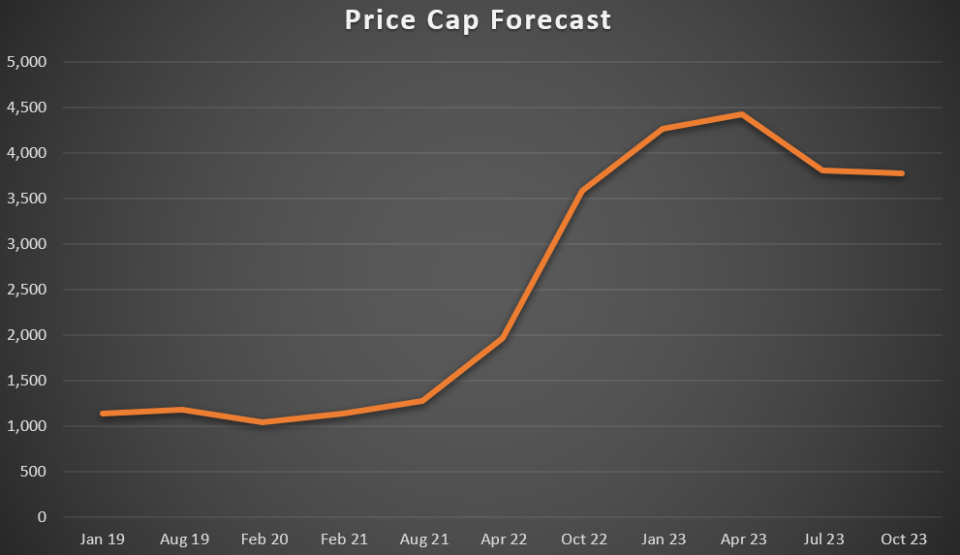Exclusive: Energy crisis is a ‘state of emergency’ and the Government has to act now, warns So Energy

The Government is running out of time to tackle rising household energy bills ahead of winter, warned Simon Oscroft, co-founder of So Energy.
He argued the crisis facing households was “a state of emergency” and that the “Government needs to act.”
In his view, the longer politicians failed to announce plans to ease the pain billpayers would suffer this winter, the fewer options they would have at their disposal.
Oscroft told City A.M.: “I think that every day that goes past, the Government is narrowing its policy options. The tools which they are going to have to utilise are going to be blunter and blunter.”
Concerns over the cost of living for millions of Brits follow multiple alarming forecasts of vast hikes in household energy bills this winter.
Cornwall Insight has predicted the cap will rise to £3,582 per year on October 1 and peak at £4,426 per year in April, and does not expect prices to drop off until 2024.

There has also been an alarming forecast from Auxilione, which believes energy prices will soar to an eye-watering £5,038 per year next April.
The current price cap – set at £1,971 per year – is already an all-time high.
Watchdog Ofgem is expected to announce the next update to the cap on August 26.
While it is not expected to kick in until October 1, industry body Energy UK has confirmed people on direct debits could be charged the higher prices ahead of the price cap update.
Former Chancellor and Tory leadership contender Rishi Sunak unveiled a £15bn support package in May, however this was based on Ofgem warnings the price cap would peak at around £2,800 per year.
Since then, there have been sharp hikes in natural gas prices, driven by fears of supply shortages with Russia cutting gas flows into Europe, and heatwave-driven volatility in Norway – the UK’s biggest overseas vendor.
Blunt tools for energy crisis
After the latest forecasts, Oscroft predicted that potentially a third of UK homes could fuel poverty by January 2023.
Oscroft favoured targeted measures such as boosting the Warm Homes Discount – which offers an annual saving to low-income households – and reducing standing charges.
However, these measures would require an act of Parliament, and Oscroft feared that Government and energy sector does not have “the luxury of time anymore.”
Instead, he suggested the Government should provide a less-focused but extensive support package to households, and easier measures such as council tax rebates and VAT cuts.
He explained: “It seems to me that the tools are becoming fewer and far between now, and they’re going to have to look at increasing the energy bill support scheme, increasing council tax rebates and increasing the additional funds for councils to find those people that are harder to reach.”
If Parliament was not recalled, he wanted to see the Conservative Party leader candidates work together to put something in place ahead of winter.

Sunak is contesting for the role of Conservative leader against Foreign Secretary Liz Truss,
Neither side has committed to any joint statements or policy proposals on energy bills, with both pursuing different policies for tackling the crisis.
Truss has called for lowering taxes, ditching green levies and kickstarting fracking, while Sunak has focused on energy efficiency and further support packages for households.
The result of the party’s membership vote is not expected until 5 September.
At that point, Oscroft suspects it will be “too late for many households” to get the support they need to help tame rising energy bills.
So Energy is a renewables-only challenger supplier, home to over 300,000 customers across the UK.
Like many suppliers, it is now dealing with more and more customers calling in worried about paying their bills this winter.
Oscroft revealed that the number of customer calls into So Energy was increasing “every day this year.”
He concluded: “We are going to see an increasingly stressed society and increasingly stressed bill payers. Our role is to support customers as best as we can. But these problems are bigger than what we alone as an energy provider can do and that’s why we need massive government support because without it we’re going to have real issues.”